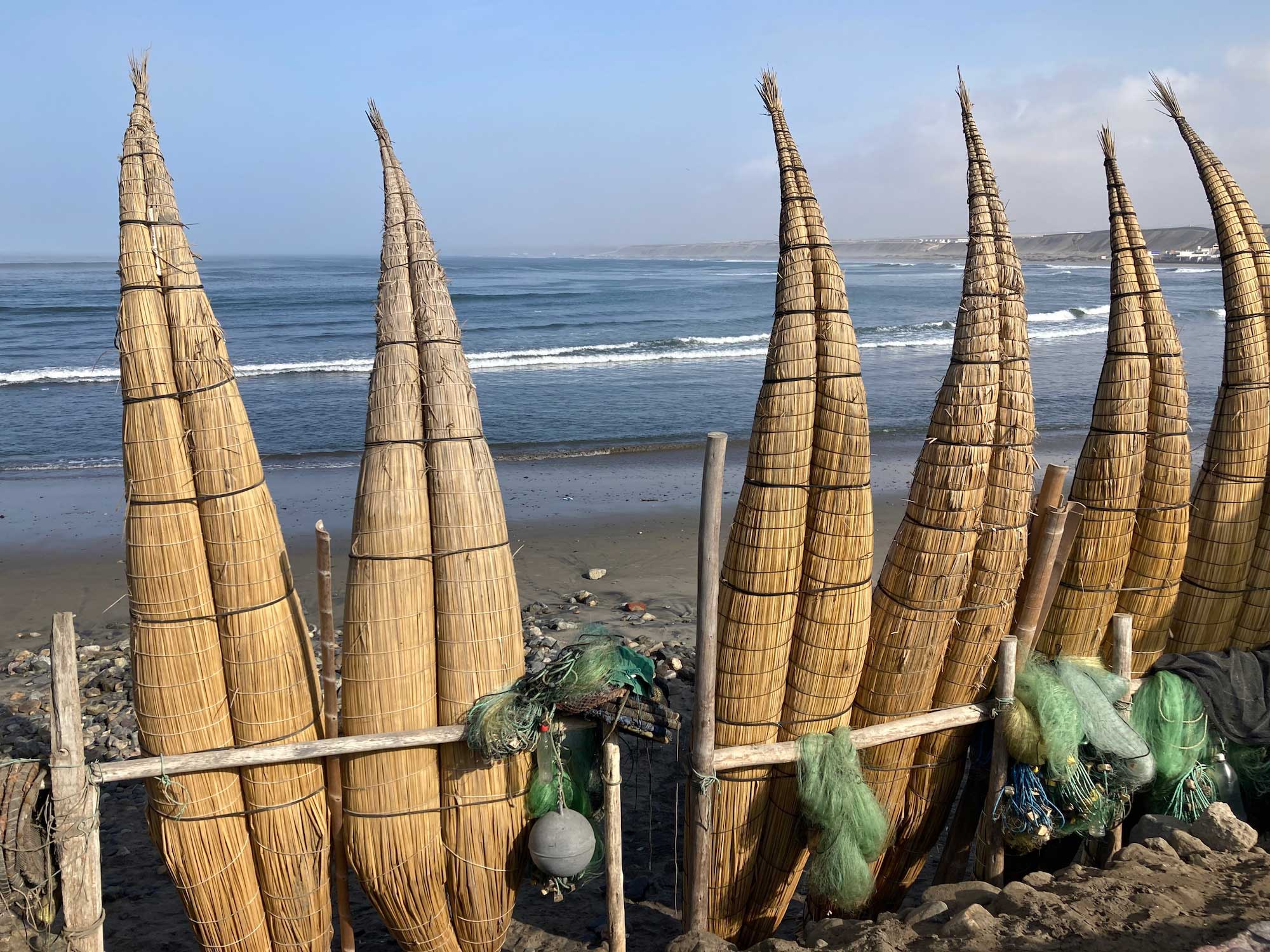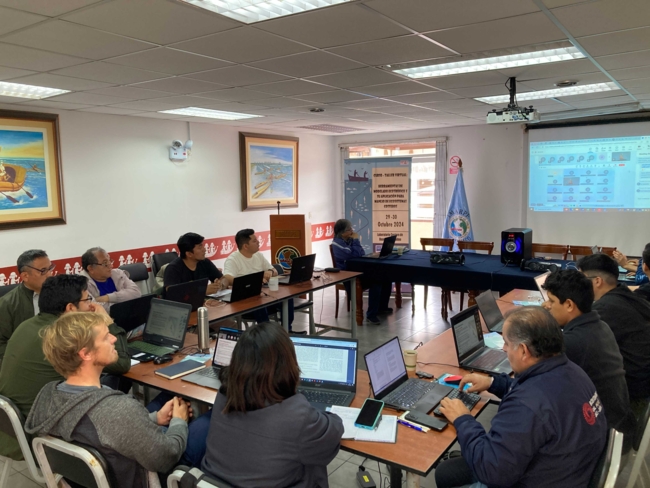06/11/2024 | On 29-30 October 2024, a team of scientists from the Leibniz Centre for Tropical Marine Research (ZMT) and the Peruvian National Institute of Marine Research (IMARPE) conducted a hybrid capacity building workshop on ecological modelling of marine systems in Huanchaco, Peru.
The workshop, held by Alonso del Solar, Stefan Koenigstein and Giovanni Romagnoni (ZMT) together with Jorge Tam und Dante Espinoza (IMARPE) provided the opportunity for scientists and professionals from the regional Coastal Laboratories of IMARPE to train in the use of the ‘Ecopath with Ecosim and Ecospace’ software, an ecosystem modelling approach widely applied to evaluate the effects of fisheries and climate change on marine ecosystems.
The 27 participants followed lectures and practical tutorials in presence and online. Jointly with the organizing scientists, they developed new ecosystem modelling projects addressing pressing local challenges for marine sustainability, setting the ground for future research collaborations between IMARPE and ZMT.

‘Caballitos de Totora - Traditional artisanal fisheries in Huanchaco | Photo: S. Königstein
The coastal town of Huanchaco is world-famous for a unique form of traditional artisanal fishery, which employs small boats hand-crafted from the ‘totora’ swamp reeds in a 3000-year-old tradition (‘Caballitos de Totora’), which is still being practiced. Today, the ecological impacts of ocean warming under global climate change, and pollution of coastal waters by sewage, garbage and chemical compounds from industries represent urgent threats for marine ecosystems, fishers and the livelihoods of coastal communities, which need to be addressed by ecosystem science and management. The new workshop equipped researchers and practioners with new skills to use modelling to develop strategies and address these challenges.
The German and Peruvian researcher organised the workshop in the framework of the work package on “Participatory ecosystem-based management strategies for shifts among pelagic resources in the Humboldt Upwelling System”, which is in turn part of the second phase of the collaborative research project ‘Humboldt Tipping’. The German-Peruvian project is coordinated by the Centre for Ocean & Society at the Christian-Albrechts-Universität zu Kiel and funded by the German Ministry for Research and Education (BMBF).





